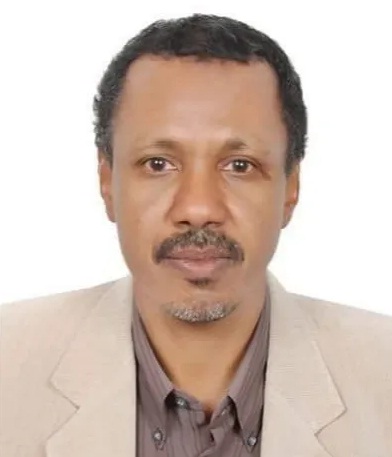Hemetti’s Most Miserable Eid: Between Pressure and Accusations

Dr. Ibrahim Al-Siddiq Ali
Multiple sources have revealed that the leader of the Rapid Support Forces (RSF), Mohamed Hamdan Dagalo (Hemetti), has faced immense pressure, criticism, and accusations following the defeat in Khartoum and the disgraceful escape of his commanders from the battlefield. This retreat resulted in the deaths of large numbers of RSF fighters, the abandonment of collaborators, and the inability to withdraw critical weapons and heavy equipment from the combat zones.
The sources of pressure came from multiple fronts:
Families and local communities who lost contact with their relatives in and around Khartoum. The RSF leadership had assured them of military plans and strategies, yet their loved ones were left to perish.
Political supporters who had signed agreements with the RSF to foster a coexistence arrangement with the Dagalo terrorist gang. These supporters had coordinated efforts and viewed their presence in Khartoum, particularly in the Republican Palace, as their strength. However, Hemetti abandoned them with no options.
The parallel government faction comprising internal forces that Hemetti had promised to announce from inside the Republican Palace or the Friendship Hall, along with external forces that supported his ambitions.
Regional backers who had heavily funded his project and provided vast resources, only to see these assets left behind on the battlefield. These financiers are among Hemetti’s most disgruntled critics now.
Hemetti attempted to justify the “withdrawal” as a collective decision. However, the reality is that the RSF leadership fled Khartoum following Hemetti and his inner circle. Once area commanders realized this, they, too, escaped without informing their junior officers and soldiers.
Abdul Rahim Dagalo, Hemetti’s brother, blamed the Khartoum debacle on Hemetti and the RSF military command in the capital, including commanders Osman Operations and Idris Hassan. Since June 2024, Hemetti had taken direct control of Khartoum’s operations, while Abdul Rahim focused on mobilization efforts in Darfur and political coordination after sidelining certain advisors. In a hidden move, Abdul Rahim was also retaliating against Hemetti’s criticisms of his failure to capture El Fasher.
Undoubtedly, this humiliating defeat in Khartoum will have far-reaching consequences:
Loss of confidence in the RSF’s military and political leadership, with rare accusations against Hemetti himself of incompetence, conspiracy, and betrayal.
Massive human losses, including fatalities, injuries, and resentment among RSF fighters who felt abandoned on the battlefield without cover or an escape route.
The loss of a critical military stronghold, the most important one, which was central to the RSF’s strategy. Given the comprehensive nature of the military operation that led to this defeat, the prospect of regaining control or launching another offensive seems unlikely.
A severe psychological blow, further eroding morale and exposing the false slogans that the RSF once upheld.
This is the worst nightmare for Hemetti, his supporters, and his political backers. He can no longer appear in any public gathering, even among his own clan.
With the liberation of Khartoum, the foundation of the Dagalo family’s project and their allies has been dismantled—a meticulously planned scheme now undone.
This marks Hemetti’s most miserable Eid, but the happiest for our nation and our people.
May Allah protect Sudan and its people.



